
Beeld: Webinar Auteurschap
Als alternatief op de najaarsbijeenkomst organiseerde de Tiele-Stichting een Webinar over auteurschap. Ook de literaire wereld heeft volop te maken met de gevolgen van de Coronacrisis: schrijvers leven zelden alleen van de boeken die ze publiceren, maar moeten het juist ook hebben van voordrachten, optredens op scholen en workshops. Wie onderzoek doet naar inkomens van…
Lees meer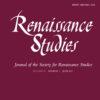
Economic advancement and reputation strategies: Seventeenth‐century Dutch women writing for profit
This essay examines how economic circumstances and imperatives influenced strategies of self‐representation employed by women writing in the Dutch Republic. At the core of the analysis is the poetry of Maria Margaretha van Akerlaecken (1605–after 1662) and Katharina Lescailje (1649–1711). Economic advancement for literary authors in the Dutch Republic was defined by the marginality of…
Lees meer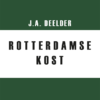
‘Lang leve de dichter!’ ‘Waarvan?’
‘Lang leve de dichter!’ ‘Waarvan?’ Deze ultrakorte dialoog stond op de achterflap van Rotterdamse kost (2017), een Poëzieweekgeschenk van Jules Deelder.2 Wie de neerlandistische literatuurgeschiedschrijving overschouwt, ziet hoe verrassend weinig die vraag, ‘Waarvan leeft de dichter?’, expliciet gesteld is. De kwesties van cultureel belang en canonisering die ook verscholen zitten in de uitroep ‘Lang leve de…
Lees meer
Naar een diachrone blik op de verdiensten van Nederlandstalige auteurs
This article argues that it is both important and viable to develop a diachronic perspective on the profits of literary authors in the Low Countries. Up to now, conceptual and theoretical boundaries between different subdisciplines within Dutch literary studies have resulted in a compartmentalized, fragmentary narrative of the economic, social and symbolic profits of literary…
Lees meer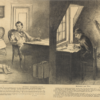
‘Echte schrijvers zijn niet te koop. Praktijk en beeldvorming van het economisch profijt van de literaire auteur door de eeuwen heen’.
A grand narrative of Dutch literary authors’ opportunities to economically profit from their writing is yet to be written. The general assumption, however, is that these opportunities developed teleologically from a dominant system of patronage during medieval and early modern times, in which financial gains were marginal and in which author’s independence of their supporters…
Lees meer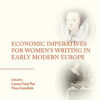
Economic Imperatives for Women’s Writing in Early Modern Europe
Economic Imperatives for Women’s Writing in Early Modern Europe delves into the early modern history of women’s authorship and literary production in Europe taking a material turn. The case studies included in the volume represent women writers from various European countries and comparatively reflect the nuances of their participation in a burgeoning commercial market for authors…
Lees meer
Duitse keurvorst betaalt Nederlandse dichteres
In 1654 verschijnt voor het eerst een Nederlandstalige gedrukte poëziebundel van de hand van een vrouw waarin religieuze onderwerpen níét de boventoon voeren. Dat is echter niet de enige reden waarom de bundel interesse wekt. De Dordtse Maria Margaretha van Akerlaecken (1605-na 1662) verkeerde financieel in zwaar weer en zocht met Den Cleefschen Pegasus steun…
Lees meer
The Phenomenon of the Married Woman Writer in the Dutch Republic
In this blog post, Nina Geerdink makes a startling discovery. Even though it has often been noted that many Dutch women stopped writing once married, she finds that there was a sizable group of women who did continue or even start writing after getting married. Here, she shows that their motivations for writing were complex but often related to…
Lees meer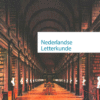
Een veelstemmig verhaal: Auteurschap in de Geschiedenis van de Nederlandse literatuur
dr. Gerard Bouwmeester, dr. Nina Geerdink, dr. Laurens Ham Authorship is a ‘trending topic’ in literary studies: specialists from all periods and languages have published widely on various topics such as posture, selffashioning, and autonomy. This contribution investigates how these recent debates found their way into the new series of literary histories published on behalf…
Lees meer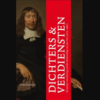
Dichters en verdiensten: De sociale verankering van het dichterschap van Jan Vos (1610-1667)
Over het algemeen wordt aangenomen dat broodschrijverij in de Republiek pas in de achttiende eeuw opkwam en in de negentiende eeuw een rol van betekenis ging spelen. Toch waren er lang daarvoor al auteurs die verdienden aan hun werk. Vooral uit de late middeleeuwen kennen we daar voorbeelden van. Hoe zat dit in de Gouden…
Lees meer
